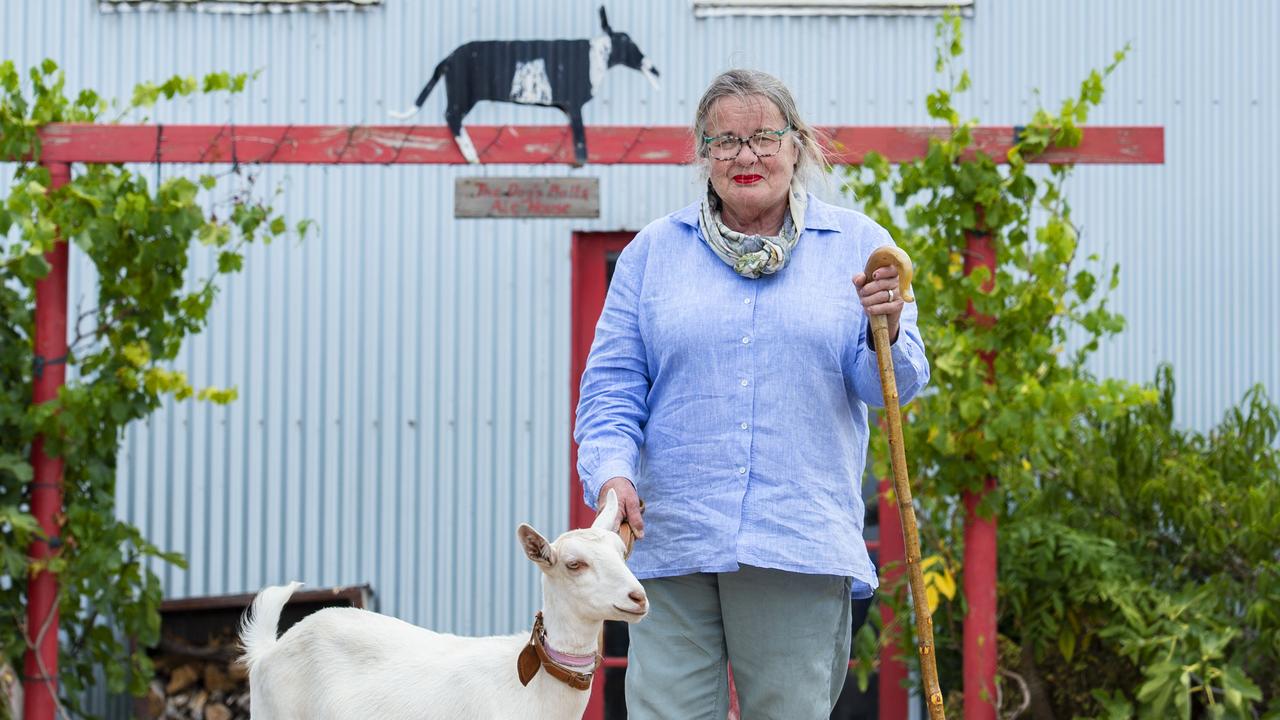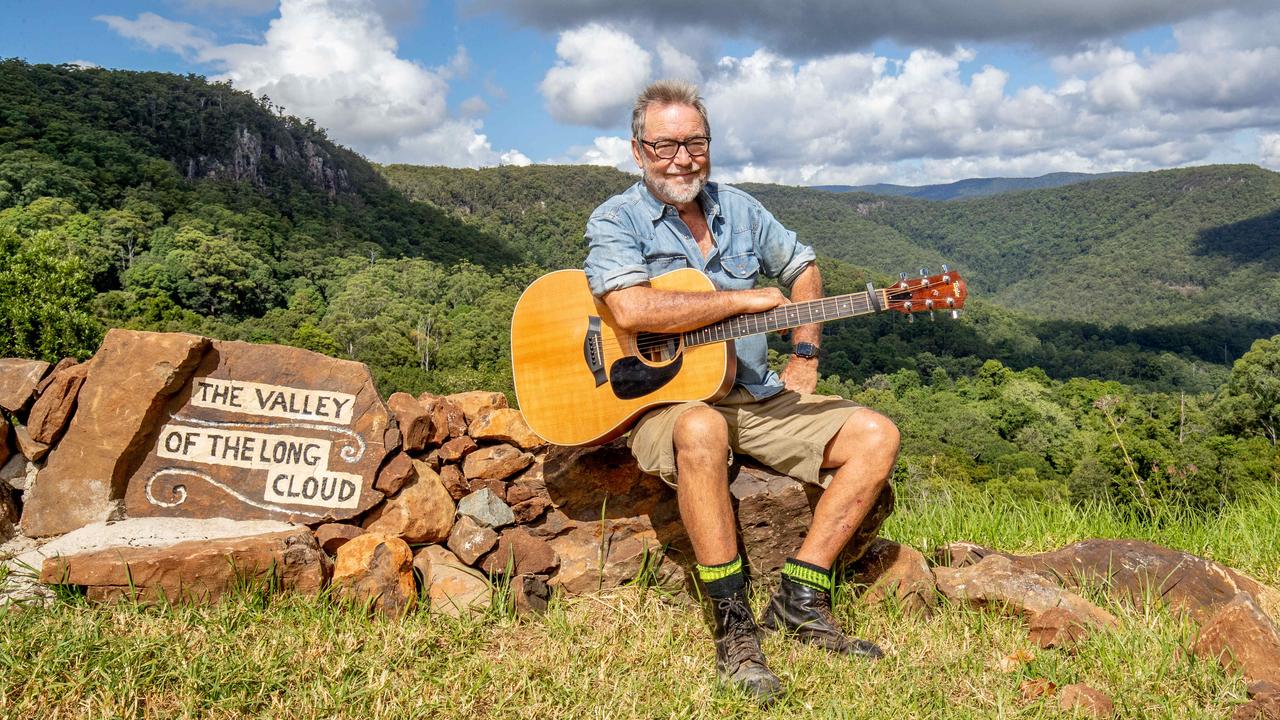Gippsland Jersey Milk is taking on the dairy industry
AGAINST the backdrop of an industry in crisis, Steve Ronalds and Sallie Jones have a dream that Gippsland Jersey Milk will one day lead to the region buying only farmer-owned milk.

“SOMETIMES you’ve just got to have the balls to be bold.”
They’re the fighting words of Jindivick dairy farmer Steve Ronalds who, with long-time friend and local produce advocate Sallie Jones, last month started a farmer-owned milk company in Gippsland.
And bold they have been.
In the face of the biggest crisis the dairy industry has experienced in years, the duo is trying something new — taking control of their product from the cow to the carton to the consumer.
Bottles of Gippsland Jersey Milk hit the shelves three weeks ago following the brand’s debut at Warragul Farmers’ Market on September 17.
That day, Steve and Sallie sold 1700 litres of milk to local shoppers eager to show support for their local dairy farmers.
“We had five people at the stall selling bottles all day with three of them making milkshakes non-stop,” Steve says.
“The interest and support we’ve had is just incredible.
“We’re green as green can be and we’re probably going to make some pretty big stuff ups.
“I mean, we’re just flying by the seat of our pants, but we’re trying — we’re just two people trying to get something done.”
Steve, whose family started the Jindi Cheese company in 1985, and who helped transition Gippsland farmers from failed dairy processor United Dairy Power to competitor Burra Foods while managing his own farm, understands first-hand the challenges facing the industry.
“There was just so much going on. Everyone thought they knew how the industry worked and then the bottom fell out of it,” he says.
“Now even what we thought was known is unknown.
“Then I thought to myself, ‘I have a beautiful farm and a beautiful herd, why can’t we add more value to what we’re doing?’”

Sallie also has industry cred as the daughter of a dairy farmer who diversified his organic milk business to create Riviera Ice Cream Co at Lakes Entrance in 1984.
She spent her childhood working on the farm while being homeschooled. At university she started a raw bath milk business, selling her dad’s excess milk at markets.
“I ran into Steve at Farm World at the end of March and he suggested that we put milk in a bottle,” Sallie says.
“Not too long after, we held a forum at the farmers’ market about what the recent price cut meant for people emotionally and financially. What we heard was just so raw.
“There was such a public outcry, too, so I thought, let’s do this.”
Just a few months later, Steve’s herd of Jersey cows, which this year numbers about 420, is now the first — and only — milk supplier to Gippsland Jersey Milk.
Although spurred on by the industry crisis, there’s another, deeply personal reason behind Sallie’s motivation.
In March this year, her father committed suicide.
“After he moved off the farm he was like a duck out of water,” Sallie says.
“He had worked essentially by himself in the dairy all his life. He wasn’t connected, he had no hobbies.
“I think a lot of dairy farmers would be in a similar position. People tend to suffer in silence, so I wanted to help kick start grassroots conversations about what’s going on.”
To that end, the fledgling milk company has partnered with The Ripple Effect, an online intervention project that aims to reduce the stigma of mental health in farming communities.
“The ripple effect of someone ending their life just isn’t talked about, and it’s devastating,” Sallie says.
“We wanted to include a bit of heart and soul in our product, so two cents from every bottle sold will go into a fund that can support local farmers, even in small ways.
“At the moment there are families that don’t have anything to live on after paying their bills, so we’d love to be able to offer them a dinner voucher so they could go out and treat themselves, or hire a relief milker so they could have a day off once in a while.
“Just some random acts of kindness, in honour of my Dad.”
Sallie says while establishing the brand hasn’t been a smooth ride, it has been a rewarding one.
“Three weeks out and we had no contracts signed and no packaging,” she says.
“When we launched, we only had orders for about 100 litres, which is not feasible at all.
“But we had faith and within two days we had sold out so we took the risk and did 4000 litres.”

Admittedly, the quantity of milk Gippsland Jersey Milk is currently producing is a mere drop in the dairy pool.
Steve estimates his herd contributes about 0.03 per cent of Victoria’s commercial milk volume.
Even if expansion plans come to fruition, they’re unlikely to become a major player in the market. But, says Steve, the potential for the region is huge.
“There are examples all over the country of people doing what we’re doing, but none in Gippsland. Gippy Milk was one years ago, but then that got bought out,” he says.
Adds Sallie: “It’s a really disappointing situation when you can’t buy locally produced milk in the heartland of dairy.
“And it’s so confusing for customers when they see farmers’ faces slapped on a milk bottle but the brand is actually owned by a huge company.
“Our dream is that the whole region only sells local farmer-owned milk.”
While such a self-controlled venture might sound to some like a no-brainer solution to dairy farmers’ current woes, it’s far from a viable option across the industry.
“Most dairy farmers wouldn’t be able to do this — it’s our combined skill set that has made this possible,” says Sallie.
“Most farmers aren’t marketers; they’re just caught up in the day-to-day running of the farm.”
“And it’s been a lot of work — we had no capital to build a processing plant so we had to shop around for a good deal, and we’ve just been constantly knocking on doors to get people to stock us.
“Thankfully we’ve been met with overwhelming support.”
It’s here Sallie’s professional background in public relations and marketing is being put to good use.
As we settle into a cafe to continue our chat, Sallie calls over the waiter.
“This is going to sound a bit cheeky,” she begins, unzipping the bright blue cooler bag she has stashed under the table and pulling out a two litre bottle of Gippsland Jersey.
“But we’re just doing an interview for our new farmer-owned milk and we’re wondering if you could please make our coffees with it?”
Before the interview is over, the barista has their business card and a jug full of product to sample.
So far, Sallie says, the feedback has been great, with about 40-50 coffee shops, milk bars and independent supermarkets signing on within the first two weeks.
Steve and Sallie are also supplying four farmers’ markets in Melbourne, a commitment that has them clocking up a few extra kilometres on the road.
“Everyone is selling out of the milk and we’ve got a list of about 180 stores that say they would stock it,” she says.
Quips Steve: “We’re selling so much I’m actually worried our calves will be getting milk from our bottles soon, which, I guess, is probably an expensive way to go about it.”
Jokes aside, Sallie, too, is confident, but cautious when asked about the business’ future prospects.
“I’ve got no doubt we can get rid of our milk each week,” Sallie says.
“We’re just hoping the demand grows enough that we can bring other farmers on board.
“We want to do this for the industry.
“We’re not going to solve the problem, but we want to bring on as many farmers as we can and hopefully we will see a positive ripple effect.”


